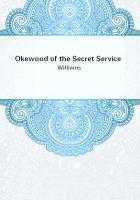Your brother, Mrs. Nelson, and Horace dined with us. Your brother was more extraordinary than ever. He would get up suddenly and cut a caper, rubbing his hands every time that the thought of your fresh laurels came into his head. But I am sure that no one really rejoiced more at heart than I did. I have lived too long to have ecstasies! But with calm reflection, I felt for my friend having got to the very summit of glory! the NE PLUS ULTRA! that he has had another opportunity of rendering his country the most important service, and manifesting again his judgment, his intrepidity, and his humanity."He had not been many weeks on shore before he was called upon to undertake a service, for which no Nelson was required. Buonaparte, who was now first consul, and in reality sole ruler of France, was ****** preparations, upon a great scale, for invading England; but his schemes in the Baltic had been baffled; fleets could not be created as they were wanted; and his armies, therefore, were to come over in gun-boats, and such small craft as could be rapidly built or collected for the occasion. From the former governments of France such threats have only been matter of insult and policy: in Buonaparte they were sincere; for this adventurer, intoxicated with success, already began to imagine that all things were to be submitted to his fortune. We had not at that time proved the superiority of our soldiers over the French; and the unreflecting multitude were not to be persuaded that an invasion could only be effected by numerous and powerful fleets. A general alarm was excited; and, in condescension to this unworthy feeling, Nelson was appointed to a command, extending from Orfordness to Beachy Head, on both shores--a sort of service, he said, for which he felt no other ability than what might be found in his zeal.
To this service, however, such as it was, he applied with his wonted alacrity; though in no cheerful frame of mind. To Lady Hamilton, his only female correspondent, he says at this time; "I am not in very good spirits; and, except that our country demands all our services and abilities to bring about an honourable peace, nothing should prevent my being the bearer of my own letter. But, my dear friend, I know you are so true and loyal an Englishwoman, that you would hate those who would not stand forth in defence of our king, laws, religion, and all that is dear to us. It is your *** that makes us go forth, and seem to tell us, "None but the brave deserve the fair"; and if we fall, we still live in the hearts of those females. It is your *** that rewards us; it is your *** who cherish our memories; and you, my dear honoured friend, are, believe me, the first, the best of your ***. I have been the world around, and in every corner of it, and never yet saw your equal, or even one who could be put in comparison with you. You know how to reward virtue, honour, and courage, and never to ask if it is placed in a prince, duke, lord, or peasant." Having hoisted his flag in the MEDUSAfrigate, he went to reconnoitre Boulogne the point from which it was supposed the great attempt would be made, and which the French, in fear of an attack themselves, were fortifying with all care. He approached near enough to sink two of their floating batteries, and to destroy a few gun-boats which were without the pier. What damage was done within could not be ascertained. "Boulogne," he said, "was certainly not a very pleasant place that morning; but," he added, "it is not my wish to injure the poor inhabitants; and the town is spared as much as the nature of the service will admit." Enough was done to show the enemy that they could not, with impunity, come outside their own ports. Nelson was satisfied by what he saw, that they meant to make an attempt from this place, but that it was impracticable; for the least wind at W.N.W. and they were lost. The ports of Flushing and Flanders were better points: there we could not tell by our eyes what means of transport were provided. From thence, therefore, if it came forth at all, the expedition would come. "And what a forlorn undertaking!" said he:
"consider cross tides, &c. As for rowing, that is impossible. It Is perfectly right to be prepared for a mad government; but with the active force which has been given me, I may pronounce it almost impracticable."That force had been got together with an alacrity which has seldom been equalled. On the 28th of July, we were, in Nelson's own words, literally at the foundation of our fabric of defence, and twelve days afterwards we were so prepared on the enemy's coast that he did not believe they could get three miles from their ports. The MEDUSA, returning to our own shores, anchored in the rolling ground off Harwich;and when Nelson wished to get to the Nore in her, the wind rendered it impossible to proceed there by the usual channel. In haste to be at the Nore, remembering that he had been a tolerable pilot for the mouth of the Thames in his younger days, and thinking it necessary that he should know all that could be known of the navigation, he requested the maritime surveyor of the coast, Mr. Spence, to get him into the Swin by any channel; for neither the pilots which he had on board, nor the Harwich ones, would take charge of the ship. No vessel drawing more than fourteen feet had ever before ventured over the Naze. Mr. Spence, however, who had surveyed the channel, carried her safely through. The channel has since been called Nelson's, though he himself wished it to be named after the MEDUSA: his name needed no new memorial.















